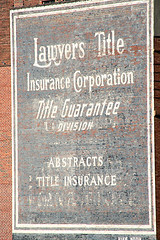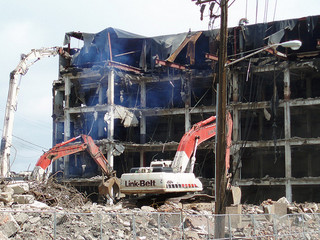Usually, residential lenders do not file judicial foreclosures. Rather, they prefer to hold a trustee’s sale to get the property back. This is a much faster, and streamlined, process which is governed by statute. In holding a trustee’s sale foreclosure however, the lender gives up any rights to a deficiency judgment. The borrower loses the house, but does not owe any money. Often the owner tries to stop the foreclosure by trustee’s sale by filing a lawsuit, alleging defects in the lender’s procedure, and seeking an injunction against proceeding. That is what happened in a recent San Diego case, but the wise lender surprised the borrower with a cross-complaint for judicial foreclosure.
 In Arabia v BAC Home Loans Servicing, L.P., Arabia refinanced his home. It was 2005, and he got an astronomical valuation- he took out a $2.8 million first, and a home equity loan of $1 million- probably lots of cash. He quit paying on the first loan in 2007. BAC began trustee sale proceedings. And Arabia sued. BAC filed a cross-complaint for judicial foreclosure. This was smart for the lender; since they were going to be tied up in a lawsuit, they might as well seek judicial foreclosure, with the resulting chance at a deficiency judgment. There was a lot of money at stake -($3.8 million total in the first and second loans. At the foreclosure the lender got the property back for a bid of $1.95 million, presumably the balance on the first). Maybe they felt that the borrower had assets, and a judgment against him could be collected.
In Arabia v BAC Home Loans Servicing, L.P., Arabia refinanced his home. It was 2005, and he got an astronomical valuation- he took out a $2.8 million first, and a home equity loan of $1 million- probably lots of cash. He quit paying on the first loan in 2007. BAC began trustee sale proceedings. And Arabia sued. BAC filed a cross-complaint for judicial foreclosure. This was smart for the lender; since they were going to be tied up in a lawsuit, they might as well seek judicial foreclosure, with the resulting chance at a deficiency judgment. There was a lot of money at stake -($3.8 million total in the first and second loans. At the foreclosure the lender got the property back for a bid of $1.95 million, presumably the balance on the first). Maybe they felt that the borrower had assets, and a judgment against him could be collected.
The Servicer Can File Judicial Foreclosure
 California Real Estate Lawyers Blog
California Real Estate Lawyers Blog


 Anyone can establish their legal or equitable right, title, estate, lien, or interest in property or cloud upon title against adverse parties. (
Anyone can establish their legal or equitable right, title, estate, lien, or interest in property or cloud upon title against adverse parties. ( In
In  The change makes sense in light of the historic purpose of Civil Procedure
The change makes sense in light of the historic purpose of Civil Procedure  In
In  In
In In
In  In
In In
In  The borrower in
The borrower in